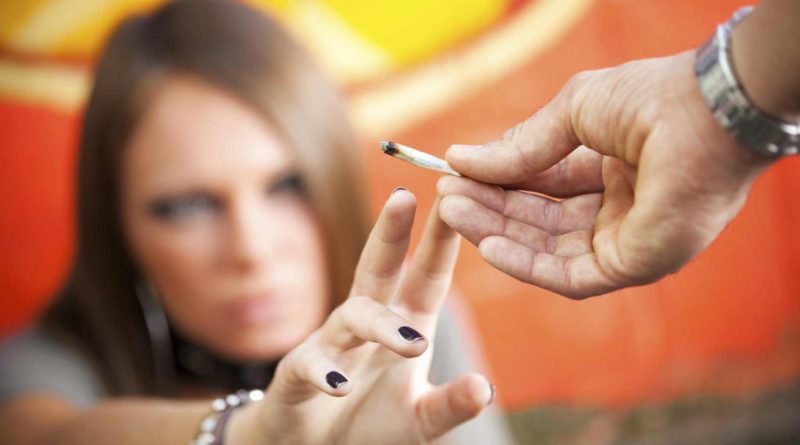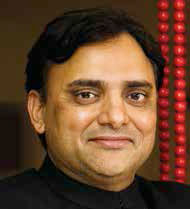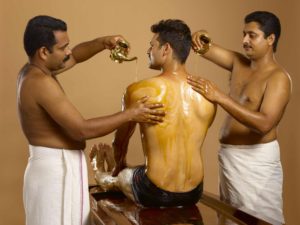Restoring the Balance
Ayurveda provides effective solutions for treating Madatya – arising from a frequent use of drugs, alcohol or other such addictive substances. Ayurvedic line of treatment goes a long way in pacifying the excited and disturbed body and mind, influenced by addiction
By Ayurvedacharya Dr Partap Chauhan
During my tours to various parts of the world, I meet a lot of wonderful people who are deeply interested in Ayurveda. Recently, I came across a very interesting case, which I would like to share with you all.
I had met a suave, 25-year-old young man four years ago. He was a high-on-life, extremely amicable and ambitious guy who deeply impressed me. He was studying very hard to fulfill his dream of working as a scientist in the NASA.
About eight months ago, when I met him again, somehow, he was just not himself. He had become a recluse and had completely given up his studies. And, he had lost so much of weight! I was quite baffled by his terrible and deteriorating condition.
I met his parents and found out that he was on drugs for the last two years. In fact, they were contemplating sending him to a rehabilitation centre. And, as expected, he wanted to hear nothing about it. Unable to find a solution, his parents enquired from me if Ayurveda could help his case.
It was then that I decided to help him using Ayurveda’s vast pool of knowledge. And, I am very happy that after working with him for six months, he’s coming back on track, and is on his way to becoming his old self.
I am writing this article in the hope that it will help other such people who are suffering from any kind of drug addiction, or substance dependence.
What is Addiction?
Addiction is a pathological or abnormal condition which arises due to frequent use of drugs, alcohol or other such addictive substances. The stages involved in addiction include progression of acute drug use, development of drug-seeking behaviour, the vulnerability to relapse, and the decreased, slowed ability to respond to naturally-rewarding stimuli, and above all, decreased motivation for normal life activities.
Drug addiction can be easily regarded as a community disease, because it leads to failure in schools, crime, violence, child abuse, domestic violence, and loss of productivity. And this is why it is so important to root out this problem from our society.
How do people get addicted?
Many people use drugs or other addictive substances in order to escape physical and emotional discomfort. Some start drinking to numb feelings of depression, some smoke pot to deal with stress at home, school or work, and a few others rely on cocaine to boost their energy and confidence. And surprisingly, many get into it just for fun and adventure!
But while these substances might make you feel better in the short-term, they do not treat the underlying problem. Instead, they simply mask the symptoms. Be it low self-esteem, anxiety, loneliness, or an unhappy family life, these problems will be there even after you take the drug away. Furthermore, prolonged drug use eventually brings its own host of problems, including major disruptions to normal, daily functioning.
Unfortunately, the physical, psychological, and social consequences of drug abuse and addiction become worse than the original problem you were trying to cope with or avoid.
What Ayurveda says…
Ayurveda considers addiction under the topic of Madatya, which means “intoxication”. Madatya is the state or symptoms that arise due to continuous use or a high dose of substances that are intoxicating.
According to Ayurveda, Madya (alcohol/drug) is the complete opposite of ojas (source of energy), which is a prerequisite for good health and wellness. Madya finishes ojas in the body, and when a person reaches that stage, he experiences the symptoms of Madatya.
According to modern medicine, there are four stages involved in the process of addiction – acute intoxication, withdrawal symptoms, drug dependence, and finally drug abuse. The state of Madatya is comparable to the third and fourth of these stages.
Doshas and Addiction
The intake of drugs leads to the aggravation of one of more doshas or Ayurvedic humours – Vata (Air), Pitta (Fire), and Kapha (Water). Depending on the dosha aggravation, the following symptoms are generally observed:
• Vata Aggravation – headache, difficulty in breathing, insomnia, vivid dreams, hallucinations, anxiety, constipation, shaking, erratic moods and thoughts
• Pitta Aggravation – burning in the stomach and digestive problems, excessive sweating and thirst, diarrhea, fever, giddiness, aggression and violence
• Kapha Aggravation – excessive sleep, lethargy, heaviness in the body, nausea, and vomiting
• Tridosha Aggravation – combination of the above symptoms In addition to these specific symptoms, the common symptoms of Madatya mentioned in Ayurveda are restlessness, piercing pain in the heart, sweating, diarrhea, thirst, fever with chills, loss of appetite, abdominal discomfort, dizziness and disturbed sleep.
These symptoms are experienced with a variety of drugs like heroin, opium, cannabis, cocaine, alcohol, barbiturates, and nicotine. This indicates a close resemblance between Madatya, as mentioned in ancient Ayurvedic texts, and the effects of modern narcotics. Therefore, Ayurvedic line of treatment for Madatya can be an effective in treating a variety of drug addictions.
Treatment for Addiction
In cases of Madatya, the main aim of Ayurvedic treatment is to balance the aggravated dosha. The first step is to determine the dosha that has been aggravated and prescribe alleviating treatment. Herbal remedies are used to treat withdrawal symptoms, remove accumulated toxins (ama) and encourage the regeneration of tissues and cells.
Strengthening Nervous System
Drug addicts often become confused, as their intelligence level deteriorates because of continued use of the drug or addictive substance. Consequently, they end up losing their sense of discrimination. In order to promote intelligence, Ayurveda recommends the use of herbs such as Brahmi (Bacopa monnieri), Yashtimadhu (Glycyrrhiza glabra), Guduchi (Tinospora cordifolia), and Shankhpushpi (Convolvulus pluricaulis). These herbs also improve memory, concentration and comprehension.
Ayurveda and Psychotherapy
Ayurveda recommends treatment to enhance Sattva Guna (quality of goodness) for promotion of mental health. People suffering from drug addiction should take fresh and natural vegetarian foods, practice meditation and Yoga, and establish a daily routine that minimizes stress and anxiety.
According to Ayurveda, activities like walking or sitting in natural surroundings, flowers, associating with good friends, wearing neat and clean clothes, listening to soft music, and other forms of relaxation and entertainment can uplift the mind and soul and make you happy. All these activities pacify the excited and disturbed body and mind that have been influenced by the drug abuse.
Some commonly available herbal treatments for drug addiction (Madatya) are:
• The juice of half a lemon can be mixed in one glass of water and taken several times a day.
• A pinch of powdered ginger is taken twice a day with water. Or, some ginger in boiled in one cup of water until it has reduced to half, added to half a cup of milk, two cardamoms and one teaspoon of honey and taken daily.
• A dose of half a teaspoon twice a day is recommended or
• Drink half a cup of grape juice two or three times daily. Also, one teaspoon of raisins soaked in water for at least four hours may be eaten in the morning and evening.
A Holistic View
The treatment of addiction is not a mere one- or two-month process. It involves several different treatments over several weeks or even months. In the initial stages, Panchakarma (mind-body healing therapies) treatment is given to cleanse the body of accumulated toxins. Then, herbal remedies are prescribed to treat the addiction and its physical or psychological effects. Customized diet plan is given to encourage the formation of vital energy (ojas) in his body. Other than all this, psychological counseling and activities such as meditation and yoga should be practised to assist the mind to become balanced and clear.
I truly believe an addiction can be controlled and eradicated with support of dear ones, and discipline on part of the addict. I have tried this with a number of patients.
(The author is Director, Jiva Ayurveda, New Delhi)




